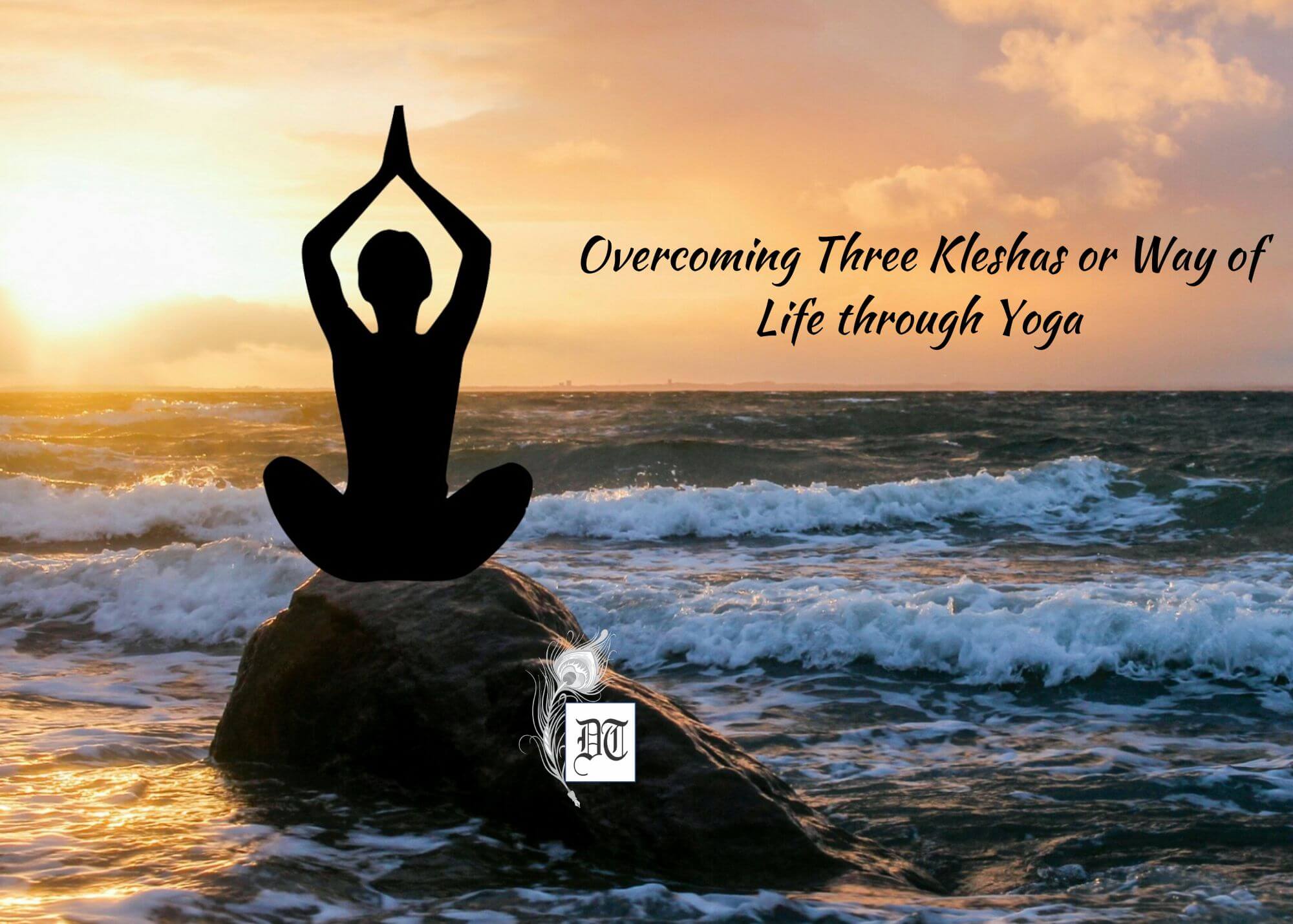The awareness that the real problem lies within us opens up completely new options: the possibilities to create solutions to external problems are very limited. We cannot change other people or create a just and peaceful world. But when we become aware of your inner confusion, or a negative emotion like anger, we can work with the help of tools like yoga. Our Associate Editor, Navodita, a yoga expert, tells us how it is important to owe that the problem lies within us. This is the key to self-realisation, she reasons, in the weekly column, exclusively in Different Truths.
According to Patanjali’s Yoga Sutras, man’s purpose on earth is to know himself at his deepest level. So far we finished discussing the eight limbs of Yoga which are the moral and ethical precepts of Yoga. As we found out, Yoga is more than just a workout. The physical practice serves one purpose only- getting to your truest core. Yoga is deep-rooted in ancient Indian philosophy and the philosophy of Upanishads, Puranas and even the Bhagvad Gita.
These texts of wisdom may not speak to the person who is full of mind chatter, but rather the conscious person, who has the ability to become aware of his thinking. Everything that we use to define or identify us, usually as a result of thought, is referred to in the Patanjali Yoga Sutra as ‘Vritti’ or the whirling of the mind. The term includes all thoughts that label you or the world around you. The suffering that you experience from a personal point of view is always connected with a certain identification with one of these labels, which ultimately arises from mind chatter. When in your sub-consciousness you can’t see this. This kind of self-inquiry can increasingly lead to somewhat disturbing but at the same time liberating realisation that the real problem is only me. This problem, which is regarded as the real and only cause of human suffering in the Indian wisdom texts, is in Sanskrit called ‘Avidya’ or ignorance.
On the one hand, it does sound disturbing that you are the problem for your own suffering because you can no longer blame anyone for it. It is also unpleasant because this means that now you have to question your ideas and beliefs about yourself and the world. If because of this you are getting sleepless nights, it only means that the knowledge is working in you. The awareness that the real problem lies within you opens up completely new options: the possibilities to create solutions to external problems are very limited. You cannot change other people or create a just and peaceful world. But when you become aware of your inner confusion, or a negative emotion like anger, you can work with the help of tools like yoga. You have a place within you where all possibilities are open to you and you are limited by nothing more than yourself. This is what is called ‘freedom’ in this context. Deliberate actions which arise from your own subjective value system will add to this state of ignorance further. If you can be aware of your ignorance instead of being proud of what is ‘known’, then you have taken the first step towards inner wisdom. It is difficult to do away with ignorance which usually occurs because you have a subjective value system in which you justify your actions. That is why the first step towards inner wisdom is – be aware of your ignorance rather than presuming you know better.
In yogic texts, inner speeds are regarded as a demonic force, while slowness as divine strength. When you have a negative emotion, things around you move very quickly and there is a feeling of tightness and being closed. During an experience such as embodied yoga practice, you feel that things are moving slowly and you feel expansiveness and openness. When you are angry, your full attention is directed outward. Instead, if you can rein in unbridled reaction to your feelings by consciously slowing down the movements of your mind in everyday life, you might start to make your own realisation and see your own confusion or misunderstanding, as opposed to bringing your focus directly on the external reasons for your anger. This gives you the opportunity to put your problem into perspective and once you have acknowledged your own confusion, you might even notice that you had overreacted.
One important thing to remember in yoga and assimilating its tenets into your life is that ‘you have the choice not be upset’. The wisdom texts maintain that the only thing that stands between you and your happiness is your ignorance and in order to be happy you have to develop more clarity. You are not supposed to use your intellect to justify your suffering, but rather to liberate it. That is why it is called ‘wisdom’ instead of ‘intelligence’.
Studying the yogic texts can be a potent way to realising the Self and finding true contentment and happiness. Many times you feel the external circumstances – like finding a good spouse, getting a better job, buying a new flat, getting a salary raise or a promotion – will bring you joy and happiness but these are things you can only aim for and try to achieve. These don’t give you lasting happiness. That is achieved by looking inward and improving the ‘Self’ and taming the soul.
©Navodita Pande
Photos from the internet.
#yoga #Selfrealisation #Avidya #Ignorance #InproveOneself #FindOneself #SolutionToProblems #YogaIsTheAnswer #Meditation #HoliticHelath #DifferentTruths









 By
By